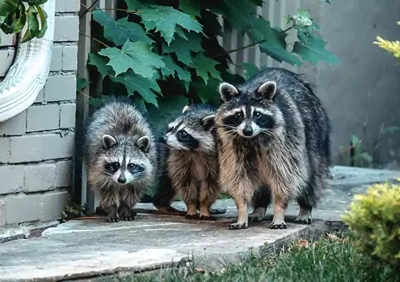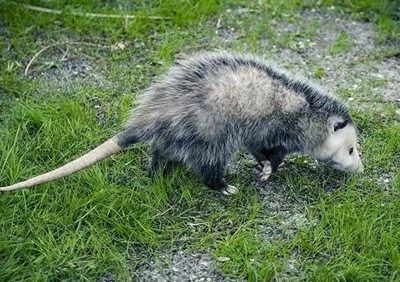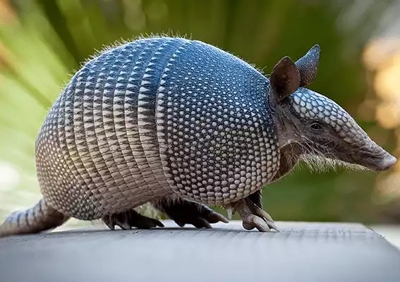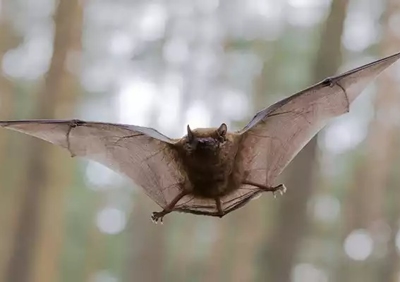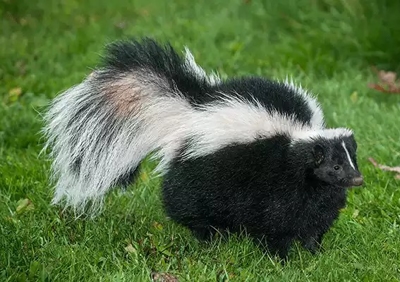
Learn About Wildlife
Frequently Asked Questions
-
What are the most common types of wildife problems?There are a variety of wildlife in Florida. Some stay where they’re supposed to and others infest residential and commercial properties in order to find food, water, and shelter. Common wildlife problems include raccoons, opossums, armadillos, skunks, snakes, and bats.
-
Do wildlife bite?Wildlife can and do bite. Though it is not typical for them to seek out people to bite, they will become aggressive and/or attack if they are cornered, threatened, or sick.
-
Are wildlife dangerous?
Wildlife should be considered a threat to health and safety as well as to property. Though they’d rather avoid people, encounters may occur and could result in bites or scratches. Unfortunately, wildlife have the potential to carry and transmit serious diseases including rabies.
It’s not uncommon for wild animals to lurk around homes and businesses. In fact, we often receive complaints of wild animals burrowing under foundations, infesting homes and businesses, chewing on wires and contaminating areas and possessions with their droppings and urine.
-
Why do I have a wildlife problem?
Food, water, and shelter are common reasons for a wildlife infestation. Open trash cans, compost piles, produce from gardens and unripened fruit from trees will attract wildlife. Pet food left outside and bird feeders may also lure these pests in.
Holes in your roof or elsewhere on the exterior of your home or business may provide easy access to wildlife looking for shelter and/or a place to raise their young. Bats can slip through small gaps and raccoons are notorious for entering through holes.
-
How do I get rid of wildife?If you’ve heard noises coming from the ceiling or have spotted wildlife in or around your structure, contact Keller’s Pest Control. Our team of wildlife control experts specialize in the humane trapping and removal of wildlife. We always relocate critters to sanctuary settings so that they can continue living- just not in your home or business.

-
 RaccoonsRaccoons are nighttime animals known for their black "mask" of fur around their eyes. They are smart and can live in many places, from forests to cities. Raccoons eat a variety of foods, including fruits, insects, and even human trash. While they may seem cute, they can spread diseases like rabies, so it's important to handle them carefully.
RaccoonsRaccoons are nighttime animals known for their black "mask" of fur around their eyes. They are smart and can live in many places, from forests to cities. Raccoons eat a variety of foods, including fruits, insects, and even human trash. While they may seem cute, they can spread diseases like rabies, so it's important to handle them carefully. -
 OpossumsAlso growing to about the same size as an average house cat, opossums have long pointed faces and ears that are void of hair. Opossums have a thick undercoat of fur that is peppered with long guard hairs and they are whitish-gray in color, and long, hairless tails that they use to hang upside down from trees with. Opossums are marsupial (meaning they carry their young in a pouch) and the only ones found in North America.
OpossumsAlso growing to about the same size as an average house cat, opossums have long pointed faces and ears that are void of hair. Opossums have a thick undercoat of fur that is peppered with long guard hairs and they are whitish-gray in color, and long, hairless tails that they use to hang upside down from trees with. Opossums are marsupial (meaning they carry their young in a pouch) and the only ones found in North America. -
 ArmadillosThe nine-banded armadillo is the only species of armadillo to be found living in the United States. They are very unique looking medium-sized animals. They have football-shaped bodies that are covered in thick skin, bony, scaled shells, and coarse, yellowish-white hairs. Their bodies are brown to gray in color, their noses are pointed and despite their less than agile appearance, they are actually excellent swimmers and runners.
ArmadillosThe nine-banded armadillo is the only species of armadillo to be found living in the United States. They are very unique looking medium-sized animals. They have football-shaped bodies that are covered in thick skin, bony, scaled shells, and coarse, yellowish-white hairs. Their bodies are brown to gray in color, their noses are pointed and despite their less than agile appearance, they are actually excellent swimmers and runners. -
 BatsFlying mammals, bats are similar in appearance but do vary by species. They have bodies that are covered in fur and wings that are covered in leathery skin. Bats usually have small, rounded ears but some may have more pointed ones.
BatsFlying mammals, bats are similar in appearance but do vary by species. They have bodies that are covered in fur and wings that are covered in leathery skin. Bats usually have small, rounded ears but some may have more pointed ones. -
 SkunksSetting appearance aside for a moment, skunks are easily identified by the potent smelling liquid that they spray to defend themselves. Skunks grow to be about the size of a typical housecat, the fur on their bodies is black in color and they have a distinctive white strip which starts at their head, then divides into two stripes. The stripes travel down the length of their bodies where they meet fluffy tails.
SkunksSetting appearance aside for a moment, skunks are easily identified by the potent smelling liquid that they spray to defend themselves. Skunks grow to be about the size of a typical housecat, the fur on their bodies is black in color and they have a distinctive white strip which starts at their head, then divides into two stripes. The stripes travel down the length of their bodies where they meet fluffy tails.

Pests Beware. We Care!
Trust Keller's Pest Control For Reliable Service With Integrity
-
No Obligation Estimates
-
Family-Owned & Operated
-
29+ Years in Business
-
Knowledgeable Technicians
-
Customer Top-Rated
-
No Contracts


-
"Knowledgable & Efficient"The technician was so knowledgeable about my bed bug issue. They came in with a heat machine and eliminated the bug quickly and efficiently. I was able to get my rental back in action the next day! Great company.- Christopher W.
-
"Longtime Customer"We have been working with Keller’s for a long time and could not be happier with their service and expertise. They are responsive and honest. We appreciate the technicians and the office team. Thank you, Keller’s Pest Control!- Christine S.
-
"4+ Year Customer"We have used them for over 4 years. Our technician is very knowledgeable and professional. We are gone from the property sometimes as long 4 months and never have any pest issues. We highly recommend Keller’s Pest Control.- Bill B.
-
"They Explained Everything"Keller's was very quick to respond to my call and came to the house at my convenience. They did such a great job at explaining things and I went with the quarterly service plan. Very reasonable pricing and gave us piece of mind.- Ron Q.
-
"A+ Communication"I've been using Keller's for over three years now and they've been great. I've had some bug problems and they have been very responsive at fixing them even if it meant showing up out of cycle to handle. Communication is key and they get an A+.- Jeff I.
-
"Bed Bugs Gone"Keller’s Pest Control is by far the best service we’ve ever had! Patrick Keller is professional, thorough & amiable. The bugs have been gone ever since they first serviced us! We will continue our service can’t recommend them enough.- Sara M.
-
"Exceptional Company"Keller's Pest Control is exceptional in every way! Their team is knowledgeable, professional, and genuinely dedicated to ensuring a pest-free home. From quickly addressing serious issues to providing regular, reliable maintenance, they’ve exceeded.- Aleks S.
-
"Outlined Treatment Plan"The technician was great and clearly explained what issues we were having in our home. They outlined the treatment plan to address those issues and the time frame. Very friendly and we look forward to a great relationship as their happy customer.- Kevin A.
-
"10+ Year Customer"I’ve used Keller’s for pest control at my house for more than 10 years. They have always provided excellent, speedy, and complete service. It's pleasure to do business with them.- Bob W.

Go With the Team You Trust.
See Our Proud Affiliations, Certifications & Awards

-
 Our Reviews
Our Reviews -
 Read Our Blog
Read Our Blog -
 Save on Service
Save on Service
